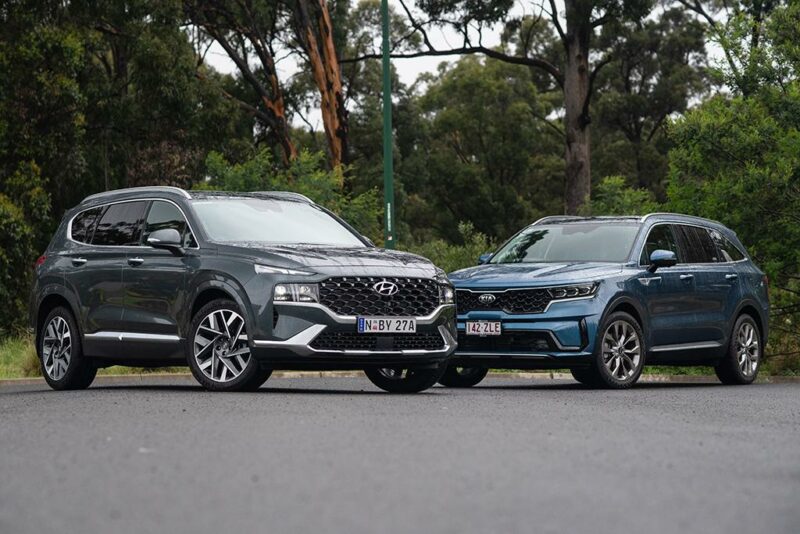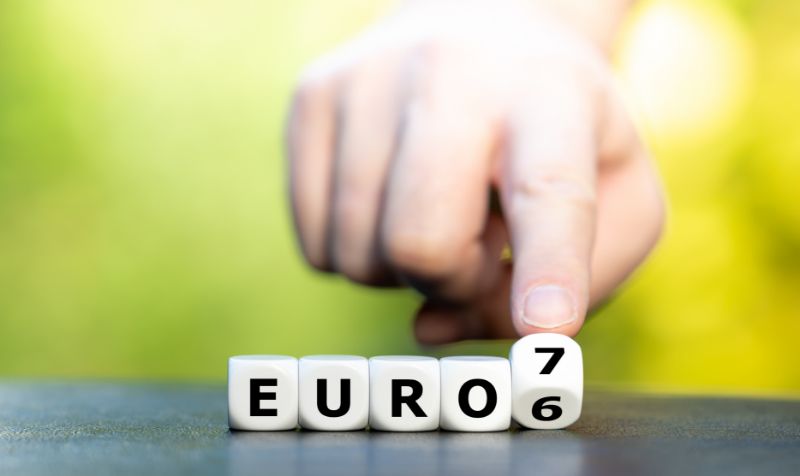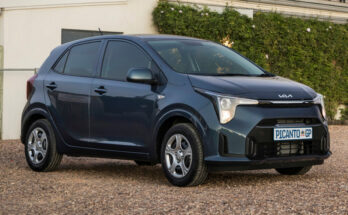The next-generation Sorento and the upcoming Santa Fe facelift are already under development by Hyundai Motor Group, and according to reports, they will feature no pure gasoline engines for the first time ever. The South Korean automaker will exclusively sell hybrid or plug-in hybrid vehicles in their future lineup in response to the EU’s stringent Euro 7 emission norms.
Related: Euro 7 and Our Affection with Euro 2
The Santa Fe, which is already on sale in South Korea, offers an array of powertrains including gasoline, gasoline turbo, and hybrid, while the recently revamped Sorento offers the same lineup as well as a diesel model. Both automakers currently offer plug-in hybrid (PHEV) powertrains in specific overseas regions.

Hyundai Motor Group is likely to promote electrification progressively beginning with the SUV portfolio, which emits more pollutants than sedans. Hybrids are projected to be standard starting with the Santa Fe and Sorento. Following that will be a sedan lineup that includes the Elantra and Grandeur. Keep in mind Hyundai is already working on a Grandeur PHEV that will be available by 2025.
Related: Skoda Fabia Might Be Axed Due To Euro 7 Regulations
Hyundai Motor Group is moving quickly to electrify its vehicles due to the EU Commission’s July 2025 deadline for implementing the Euro 7 regulations, which will drastically tighten emissions limits on automobiles. All passenger cars to be sold in Europe by 2025 will need to lower their nitrogen oxide emissions from the current 80 mg/km (Euro 6) to 60 mg/km, as per the Euro7 draft that was released late last year. Compliance with emission requirements is extended to a maximum of ten years. Also, there have been plans to include uncontrolled brake particle discharge, and tire microplastic discharge standards, etc.

Following the implementation of Euro 7, the manufacturers will have to strengthen the durability of the gasoline model, install a gas reduction device, and absorb the expenses of increased vehicle prices. This is why the European Association of Automobile Industries (ACEA), whose members include Mercedes-Benz, BMW, and Volkswagen, has been less realistic and has vehemently opposed the cost-reduction impact. The European Commission is even considering methods to simplify the Euro7’s details.
Related: European Union Agrees on Weaker Euro 7 Emissions Regulations
While the European Parliament has just voted for a more realistic approach to Euro 7, compared to what the European Commission put forward last year, Euro 7 still comes with a heavy price tag and is at a very critical juncture in the industry’s transformation. ACEA Director General, Sigrid de Vries stated:
“The fact remains that Euro 7 represents a significant investment for vehicle manufacturers, on top of their huge decarbonization efforts. It also comes in an extraordinarily challenging geopolitical and economic context, marked by soaring energy prices, supply chain shortages, inflationary pressures, and lagging consumer demand. Europe needs a proportionate Euro 7 that balances environmental concerns and industrial competitiveness. There can be no doubt about the industry’s commitment to improving air quality. That is why the auto industry has already poured extensive resources into the latest Euro pollutant standards, Euro 6. These investments have paid off, as exhaust emissions are barely measurable today.”
ACEA believes it makes sense to address brake and tire emissions with Euro 7, as these are also relevant for electric vehicles, and will be the leading source of road pollutant emissions in the future. However, as the testing methods for non-exhaust emissions are entirely new and untried, the technical feasibility of these new targets needs to be ensured.

Responsible for delivering local & international automotive news.




